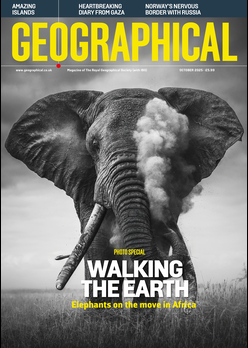
Night and day, they never stop burning. For the past decade, black plumes of smoke generated by gas flaring from oil wells have been a familiar sight for the children who play beside the giant oil fields of southern Iraq
Report by Sara Manisera, Daniela Sala and Essam El Sudani, Photographs by Daniela Sala
Welcome to hell,’ is how a resident greets us in Zubayr, a city of two million next to one of the biggest oil fields in Iraq. The streets are unpaved, and electricity is available for only a few hours a day. Pollution from gas flaring is obvious wherever you go in the region. Not so apparent is the growing health toll on the local population; doctors link cases of cancer and respiratory disease to the all-pervading pollution.
Iraq is the second-largest oil producer within OPEC, the Organisation of the Petroleum Exporting Countries, and oil accounts for more than 90 per cent of the country’s income. Following the 2003 US-led invasion, its major oil fields are operated by foreign industry giants such as BP, ENI, Exxon and Lukoil.
The oil industry is also exacerbating a problem that affects the whole country. For thousands of years, the Tigris and Euphrates rivers brought life to the region, but vast hydroelectric plants upstream in Turkey and Syria, extensive sand and gravel mining, the draining of marshland and other abuses have left the country parched. According to the UN, Iraq is the fifth most vulnerable country in the world to the climate crisis and water scarcity. In one recent survey, 90 per cent of Iraqi farmers said that water shortages have caused them to lose their wheat and vegetable harvests.
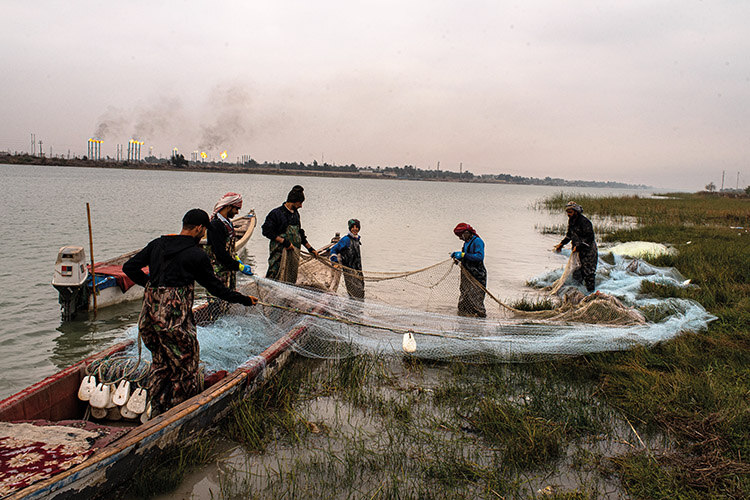
The oil industry is now compounding the problem by diverting the dwindling water supply to keep the oil fields productive as demand has soared. In 2021, 24 per cent of the crude extracted in Iraq was exported to Europe. With the war in Ukraine, this grew by 40 per cent last year.
To ensure the flow of oil, the companies must maintain the pressure on the deposits. To do so, they inject water into the wells: on average, 1.5 to three barrels of water are needed for each barrel of oil extracted. Alternatives to freshwater do exist, such as seawater or gas reinjection, but Iraq lacks the required infrastructure – and the multinational companies have so far shown little interest in investing in such plant.
The framework within which the oil companies operate is complicated. Iraq retains ownership of the reserves, while foreign companies are responsible for the development of the fields and operate through a series of service contracts with the state-owned Basra Oil Company. They are repaid costs plus a fee for each barrel of oil extracted.
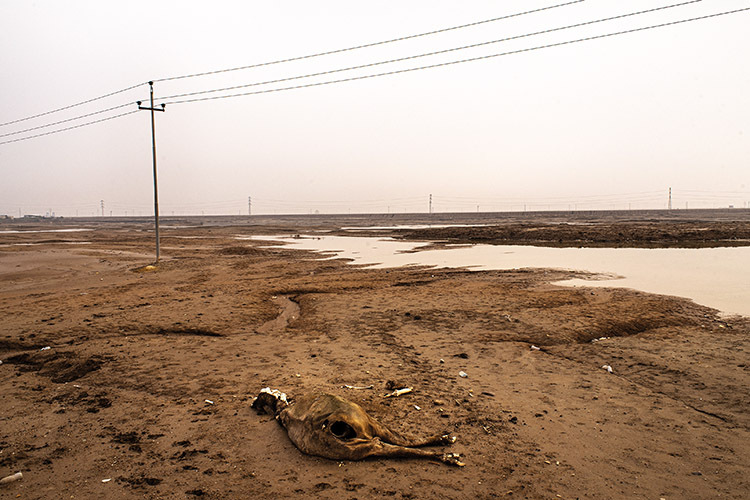
When the process of auctioning off oil fields in southern Iraq began in 2008, the Iraqi government offered foreign oil companies contracts that lasted up to 25 years. These came with stabilisation clauses that insulated foreign companies from legal changes that might emerge over the course of their contracts. This meant that the companies were, and continue to be, exempt from any environmental regulations passed by the Iraqi government to reduce pollution or bring the country’s laws in line with emerging international environmental protection standards.
Gas flaring should be limited to emergency safety procedures to reduce the build-up of pressure in the wells, but in southern Iraq, it happens all of the time. No-one is willing to pay the cost of capturing the gas escaping from the wells, so it’s left to burn. Flaring is considered a danger to the environment and human health, as well as a waste of fuel. The World Bank has called on energy companies to stop excess flaring by 2030. In 2018, the gas flared within a 70-kilometre radius of Basra exceeded the total flaring volume during the same period of Saudi Arabia, China, Canada and India combined. For health reasons, Iraqi law makes it illegal for gas flaring to take place within ten kilometres of residential buildings, but this law is largely ignored.
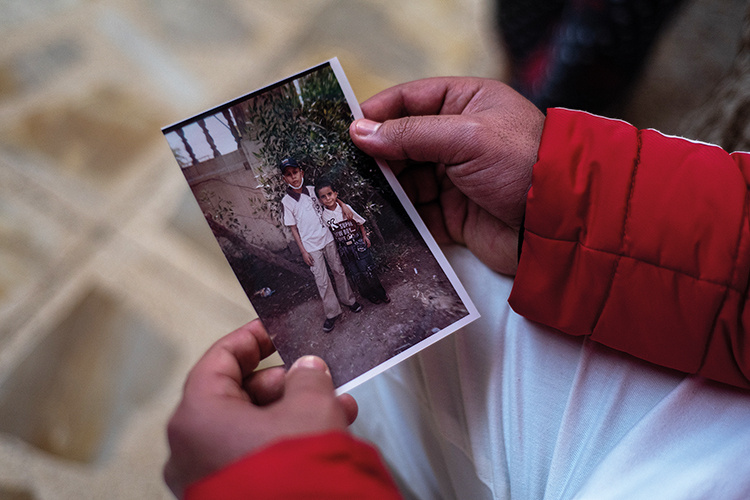
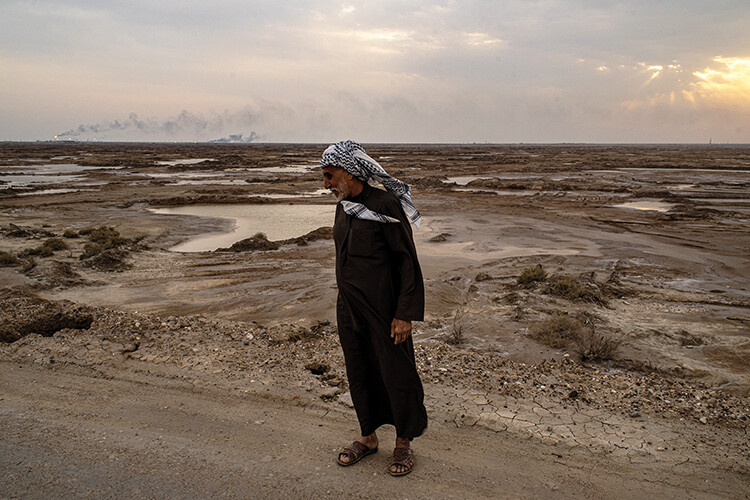
HEALTH CRISIS
On the roof of the local health centre in Shaibah, a device installed by the Ministry of Environment should monitor the air quality, but according to employees at the health centre it hasn’t worked for years. The only way for parents to protect their children from the pollution is to forbid them to play outside when the smoke is particularly thick.
There was a time when local residents hoped that the development of the surrounding oil fields would bring jobs and development. While many residents work in the oil industry, hope for a better future is long gone.

Around the corner from the health centre stands the house of 33-year-old Nouri Sadeq Hassan Salman. He lives with his parents, his wife and his four children. The rooms are barren, and the roof is made of canes. For three years, until 2014, Salman worked in the oil field in Hammar, where the Italian company ENI operates, but he never had a contract with the multinational; he was one of the hundreds of daily workers deployed by subcontractors.
‘My task was to operate a drill for some construction work. It was a heavy job, and I was breathing thick smoke every day inside the plant’, Salman says. He would work from six in the morning until two in the afternoon for a daily wage of 18,000 Iraqi dinars (around £8). ‘It wasn’t a good salary, but there were no other jobs.’
Salman speaks in a soft voice and is clearly underweight. Sitting on a mattress on the ground, he starts to pull out dozens of papers and medical records. ‘At some point, I got sick, and I did not get better, so I decided to go to the doctor, and I was diagnosed with bilateral kidney failure,’ he tells us. ‘The doctor told me it was due to the environment I worked and lived in’.

As he speaks, his father adds: ‘I know at least four people in our neighbourhood who died of cancer.’
Salman had to give up his job and hasn’t worked since.
Every other day, he travels to the hospital in Basra to undergo dialysis. His only hope for recovery is a kidney transplant, but the family can’t afford it.
‘We all know how dangerous living close to the oil fields is,’ Salman says. ‘I blame myself for getting sick, for my decision to work there. But what option do we have? And how can I not be angry?’
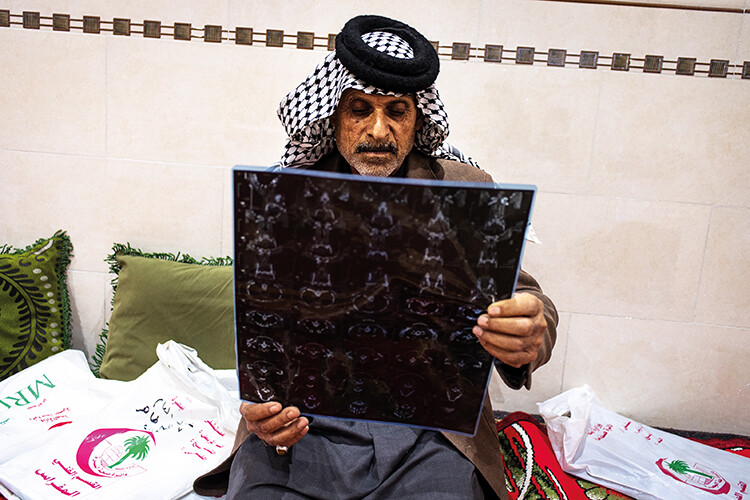
His older brother and two of his cousins still work at the oil field. ‘We can only live day by day’, he says. In Zubayr, finding people with cancer or other pollution-related diseases is an upsettingly easy task. Talk to any passersby in the street and you’ll discover that most people someone who has died from cancer or is being treated for it.
However, the official Iraqi Ministry of Health figures only show a slight increase in cancer cases over the past few years. For example, the public figure for new cancer cases in Basra is around 2,000 a year. But an internal document produced by the same ministry and leaked to our reporters put the number at four times higher – on average 8,000 new cases a year.
Both ENI and BP say that although they hold a majority stake in the consortium that has rights to the oilfields, they aren’t operators, and ‘all the responsibility sits with the Basra Oil Company’.
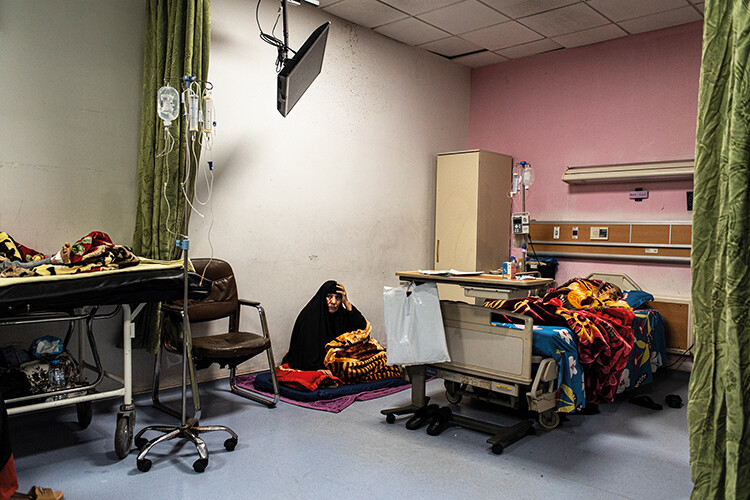
PAYING THE COST
Local activists and public officers are trying to hold the oil industry accountable. The consequences of the pollution and the lack of fresh water in Basra are impossible to ignore. In 2018, an acute water crisis in the city resulted in 118,000 people being hospitalised and led to violent protests.
‘We are not affected by the oil industry and the climate crisis – we are infected by it’, says Walid Al Hamid, going straight to the point. Al Hamid is the head of the environmental department for southern Iraq, a branch of the Ministry of Environment. The department’s responsibilities include inspections of the oil fields and sanctioning the companies for environmental wrongdoings, such as oil spills or illegal waste dumping. ENI, BP and Lukoil have all been fined for such breaches, but according to Al Hamid, the fines have never been paid.
‘Contrary to [the situation in] other countries they drill for oil and operate in, in Iraq, most foreign oil companies do nothing to limit their environmental impact. For them, it is just cheaper to keep polluting the environment,’ he tells us.
This is especially true when no-one forces these companies to pay compensation. ‘In 2010, following the disastrous Deepwater Horizon oil spill off the US coast, in the Gulf of Mexico, BP was forced to pay US$18 billion as compensation,’ says Al Hamid. ‘Imagine how much they should pay for what they have done in Iraq.’
He holds the Iraqi government accountable – for not forcing oil companies to abide by the law. ‘Why, in other Arab countries, do these companies not flare?’ he asks. ‘Because they were forced to invest in infrastructure to recapture the gas and to produce energy.’
Sitting in his house late in the evening after a long day at the office, Al Hamid recalls what drives him to fight for the environment. ‘As a kid, I was fascinated by the things my father was telling me: how they used to swim in rivers, drinking the water, fishing,’ he says. ‘Basra was famous for its canals, but now they are an open-air sewer.’ As he speaks, his smile turns into a grimace. ‘It hurts me to think about this, and I am embarrassed for how we could end up this bad.’
Despite the odds, Al Hamid is hopeful. He might be considered a troublemaker, he says, but the truth is that he doesn’t have anything personal against foreign companies. ‘It is just my mission – it is a moral commitment to my country, to my children and to the future generation.’ He is sure, he says, that if they keep fighting, Basra will once again be famous as the Venice of the Middle East – as it once was.

